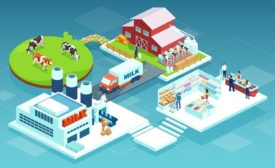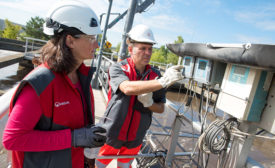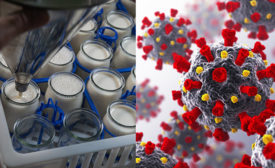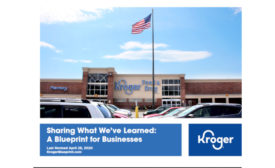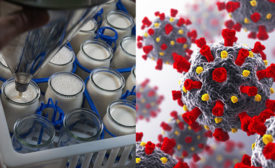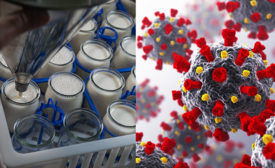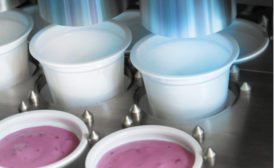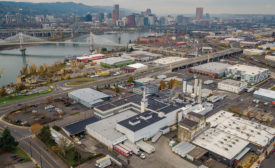Home » dairy processing
Articles Tagged with ''dairy processing''
Dairy processors can appeal to the large base of eco-conscious consumers by emphasizing sustainability throughout their supply chains, but compliance can be complex.
Read More
Dairy plants seek sustainability solutions
Dairy processors have a plethora of options to green up their operations.
June 24, 2021
Go with the eco-friendly flow in dairy processing operations
Dairy processors are in a position to reduce water and energy volumes, but taking advantage of the opportunities will require the proper attitude.
June 4, 2021
3-A SSI China trademark attorneys issue advisory against counterfeits
A new advisory, published in English and Chinese, aims to stop Chinese companies that are falsely advertising themselves as being 3-A SSI authorized from marketing or sending such products to the United States.
September 15, 2020
Food and beverage manufacturers expect long recovery from COVID-19-related challenges
Exclusive coronavirus-focused BNP Media survey shows that more than a third of food and beverage manufacturers believe it will take seven or more months to get their business back on track.
May 8, 2020
Kroger resource helps food manufacturers navigate next phase of pandemic
The company shares the steps it’s taken to safeguard plant employees.
April 30, 2020
Dairy execs weigh in on coronavirus-related efforts and challenges, Part 2
Dairy processors continue to operate as part of a subset of industries deemed essential to continued critical infrastructure viability.
March 30, 2020
Dairy execs weigh in on coronavirus-related efforts and challenges, Part 1
Dairy processors continue to operate as part of a subset of industries deemed essential to continued critical infrastructure viability.
March 27, 2020
Meet the challenges of dosing viscous products
From product diversification to small batches and biomonitoring, the increasing demands of consumers and the industry require flexible dosing systems.
February 4, 2020
Darigold’s Portland, Ore., plant is solving the puzzle
Producing over 150 SKUs, Darigold’s ultrapasteurized milk plant in Portland, Ore., has to stay flexible and organized to manage its complicated production schedules.
January 6, 2020
Stay ahead of the curve. Unlock a dose of cutting-edge insights.
Receive our premium content directly to your inbox.
SIGN-UP TODAYCopyright ©2025. All Rights Reserved BNP Media.
Design, CMS, Hosting & Web Development :: ePublishing
